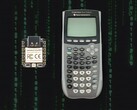Orange Pi is offering a new single-board computer in the Orange Pi RV, which, at first glance, appears to be a typical single-board computer like the Raspberry Pi 5. But as is so often the case, there are big differences in the details. For example, it does not have an SoC based on ARM architecture, but a RISC-V computing chip. A JH7110 with four computing cores is installed, which is also used in other models such as the Star64.
Depending on the variant selected, 2, 4 or 8 GB of LPDDR4 memory is installed. An M.2 2280 SSD connected via PCIe can be mounted, which is a very simple type of installation - even simpler is the use of a memory card, which is also possible with the Orange Pi RV. External storage media and accessories can be connected via USB 3.0. Cameras can be connected via CSI, while monitors can be linked not only via DSI but also via HDMI 2.0, allowing for 4K resolution and a framerate of 30 fps.
In terms of network connections, users do not have to make too many compromises here either, as both a wired connection via Ethernet with Gigabit speed and a wireless connection via WiFi 5 are possible. Although the latter does not correspond to the latest transmission standard, this should suffice for a single-board computer. Bluetooth 5.0 is also supported. A GPIO pin header consisting of 40 pins is available, which can be used to easily connect sensors and actuators as usual.
Information on price or availability is not yet available.


































